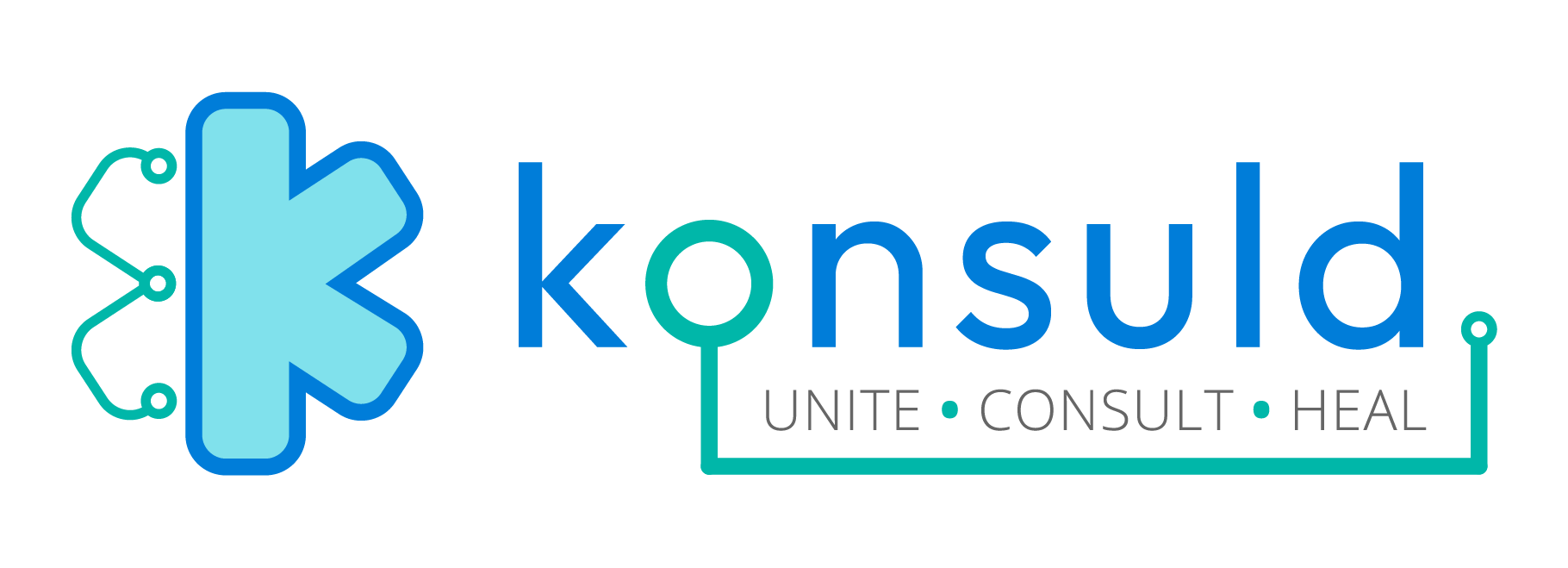Healthcare is at a technological turning point. With the rapid expansion of medical knowledge—over 2.5 quintillion bytes of data generated daily—clinicians face the daunting challenge of extracting meaningful, actionable insights in real-time. Enter Konsuld: a cutting-edge platform that combines advanced AI, knowledge graphs, vector indexing, and semantic search to redefine clinical collaboration.
Imagine this: a clinician facing a complex case within a specific specialty (or even a multi-disciplinary) queries the system, and within seconds, receives contextually relevant, precise insights backed by global expertise.
This isn’t science fiction.
It’s the reality Konsuld is shaping.
Let’s break down how these technologies work and why they matter for the future of healthcare.
Advanced AI: The Foundation of Smarter Clinical Collaboration
At the heart of Konsuld’s platform is advanced artificial intelligence (AI), which processes massive volumes of data to uncover actionable insights.
But what exactly does “advanced AI” mean? Unlike traditional AI, which operates in narrowly defined areas, advanced AI integrates multiple data sources, derives patterns, and delivers predictions with exceptional accuracy.
In the context of clinical collaboration, AI becomes a powerful enabler. It can analyze patient records, medical research, and clinical guidelines to provide healthcare professionals with the precise information they need. This isn’t just about speed—it’s about enabling better decisions. When every second counts, AI ensures that clinicians spend less time sifting through data and more time focusing on patient care.
Knowledge Graphs: The Backbone of Data Organization
Knowledge graphs are the unsung heroes of Konsuld’s platform. They structure vast amounts of medical data into interconnected networks of relationships, creating a map of knowledge that’s both dynamic and intuitive.
Think of a knowledge graph as a web where every piece of information—whether it’s a symptom, diagnosis, treatment, or research finding—is linked to related concepts.
For clinicians, this means no more wading through disconnected pieces of information. Instead, a single query can retrieve all the relevant data, seamlessly organized to show how everything fits together.
In oncology, for example, a knowledge graph might link a patient’s genetic mutation to targeted therapies, clinical trials, and ongoing research, giving providers a holistic view of treatment options.
The scalability of knowledge graphs is another critical advantage.
As medical data grows exponentially, knowledge graphs ensure that the system remains efficient, accurate, and ready for future challenges.
Vector Indexing and Semantic Filtering: Making Search Smarter
Traditional keyword searches often fall short in the medical field. They’re rigid, literal, and fail to capture the nuanced connections that are vital in healthcare decision-making. This is where Konsuld’s use of vector indexing and semantic filtering shines.
Vector indexing translates complex medical information into numerical representations, allowing the platform to process and retrieve data with incredible precision. Paired with semantic filtering, which interprets the meaning behind a query rather than just matching keywords, this technology ensures that search results are contextually relevant.
For instance, again within oncology, when a clinician queries “breast cancer treatment for HER2-positive patients,” Konsuld’s semantic filtering can surface results that include targeted therapies, clinical trials, and recent advancements—even if those terms aren’t explicitly mentioned in the query.
This level of sophistication transforms search into a dynamic tool that supports smarter, faster decision-making.
AI-Powered Natural Text Generation: Turning Data into Action
In healthcare and in any industry, data is only valuable if it’s actionable.
Natural text generation, another core feature of Konsuld, converts complex insights into clear, human-readable language. By doing so, it bridges the gap between advanced technology and practical application.
When clinicians receive query results from Konsuld, they don’t need to decipher dense medical jargon or technical data. Instead, the platform presents findings as concise, actionable summaries. This makes it easier for healthcare providers to make informed decisions quickly, especially in high-pressure situations.
Natural text generation also ensures inclusivity, allowing clinicians with varying levels of technical expertise to fully leverage the platform’s capabilities.
Whether you’re an experienced clinician or a nurse practitioner handling a complex case, the insights are presented in a way that’s intuitive and easy to understand.
Real-World Applications of Konsuld’s Technology in Healthcare
Konsuld’s impact goes far beyond theoretical possibilities—it’s revolutionizing clinical workflows across specialties.
Take the example of a complex cardiovascular case requiring input from a cardiologist, electrophysiologist, and cardiac surgeon.
Traditionally, this type of collaboration might involve delays due to scheduling conflicts or fragmented communication channels.
With Konsuld, providers can connect instantly through a secure, real-time platform. AI-driven tools analyze patient data and surface relevant treatment guidelines, research, and procedural recommendations, allowing the care team to align on the best course of action more efficiently than ever.
In another scenario, consider a primary care physician in a rural setting managing a patient with an uncommon autoimmune disease. Without nearby specialists, they may struggle to make a precise diagnosis or identify appropriate treatments.
Konsuld bridges this gap by providing immediate access to a global network of experts. Through the platform, the physician can consult with specialists, gain insights into similar cases, and leverage advanced AI to uncover the most relevant clinical information.
These examples illustrate the transformative power of Konsuld’s technology. By enhancing collaboration, streamlining workflows, and delivering actionable insights, the platform empowers healthcare providers to make faster, smarter decisions, improving outcomes for patients across the board.
The Future of AI-Driven Clinical Collaboration
As the demands on healthcare providers continue to grow, tools like Konsuld are no longer optional—they’re essential. By leveraging Konsuld’s AI, knowledge graphs, vector indexing, and semantic search, Konsuld is breaking down the barriers to effective collaboration and enabling smarter, faster decisions in oncology and beyond.
The future of healthcare lies in connection: between providers, between data points, and between innovative technologies. Konsuld is at the forefront of this movement, ensuring that healthcare professionals have the tools they need to succeed in an increasingly complex world.
Are you ready to embrace the future of smarter, faster clinical collaboration? Start exploring how Konsuld can transform your practice today.

Chief Artificial Intelligence Officer – Konsuld
I am an entrepreneurial data architect with a record of successes. I am creative, analytical and a curious problem solver who defines and drives strategic and tactical growth. Record of taking products from initial product conception to customer installation. A thought leader who puts thought into practice. Konsuld is a clinician-exclusive platform revolutionizing patient care through seamless collaboration and cutting-edge AI-driven tools. We integrate diverse medical data sources, like PubMed and medical guidelines, to provide HCPs with actionable insights in real-time.





